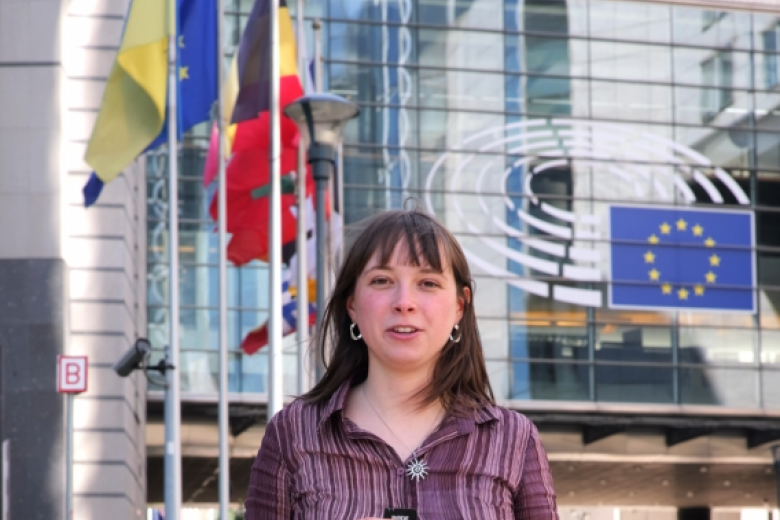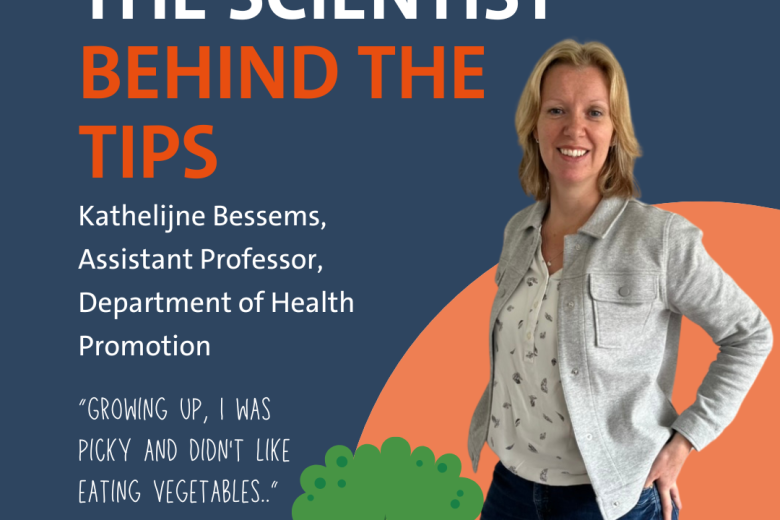Master's student and cycling enthusiast writes thesis on Annemiek van Vleuten's training data
Imagine this: as a newly graduated master's student, you get to share the insights you gained during your research at an international conference. This happened to Bram Mennen. At the end of June 2024, he presented the results of his thesis on the training data of top cyclist Annemiek van Vleuten at the Science in Cycling Conference in Florence. "I found it incredibly special to share my insights with the cycling world," said the proud Master of Science.
Bram studied Human Movement Sciences at Maastricht University, specialising in Sports & Nutrition. "The focus of the programme is on improving nutrition before, during, and after different sports," he explains. "The programme was a perfect fit for me because I have always wanted to understand how sports affect the body and what processes occur when you have trained hard. It was a very interesting study. The best part is that I learned how to translate scientific knowledge into practice. My thesis is a great example of that."
12 years of training data
For his master's thesis, Bram analysed all of Annemiek van Vleuten's training data, a top athlete in women's cycling. "I am a huge cycling fan, and I also cycle avidly myself," he says. "It seemed incredibly cool to write a thesis with a link to cycling. Through a family member, I got in touch with Louis Delahaye, Annemiek's trainer. He gave me access to all her training data from the past 12 years. It was an amazing opportunity that I seized with both hands."
Coming up with a suitable research question was the hardest part. "I had information about every training session and every race Annemiek had participated in over the past 12 years. Think of data on her heart rate, her power and speed, including feedback from her trainer on the training sessions and races. That is a huge amount of information. Eventually, I decided to investigate how training volume and the number of days Annemiek trained at altitude in the mountains affected her speed and performance."
Sparring partners
After that, the research practically conducted itself. Bram: "It was a lot of work, but I really enjoyed doing it." Thanks to the useful feedback from his sparring partners - Louis Delahaye, sports scientist Bas van Hooren and his supervisor Matthijs Hesselink - he kept making progress.
Bram's research revealed that the number of training hours and the number of days spent at altitude (in the mountains) are related to an athlete's performance. The more Annemiek trained and stayed at altitude, the better her race results and power output.
Training philosophy
The most fascinating insight is related to performance after a certain number of hours of cycling. Bram explains, "Throughout her career, Annemiek became increasingly resilient to fatigue each year. In the beginning, she could not maintain the speed at which she cycled up a mountain at the beginning of a training session or race until the end. But she got better and better at that, because Louis Delahaye made her cycle for many hours at low intensity. His training philosophy is that you only win a race if you can cycle up a mountain fast at the beginning as well as at the end. The effectiveness of this approach is evident in Annemiek's achievements. She has won everything there is to win in women's cycling."
The results of Bram's research are of value to trainers and coaches. That is why it is especially nice that he was able to share his insights at the Science in Cycling Conference in Florence at the end of June. This conference is held every year before the Tour de France and is a gathering where scientists, coaches, team managers, and nutritionists from the cycling world share the latest insights. "I explained the results using a poster. It was incredibly cool to talk to different trainers and scientists about science and cycling. I also noticed how many people were interested in the poster. Very nice!"
In the coming weeks, Bram is enjoying a well-deserved cycling holiday in France. It is a great opportunity for him to reflect on his plans now that he has graduated. "I would ideally like to work as a trainer, exercise scientist, or nutritionist with a World Tour cycling team. However, I also think it would be interesting to do research on cycling and endurance sports."
"It’s wonderful to see that my research results are valuable to trainers and coaches in the cycling world."
Bram MennenScientific paper
Fortunately, Bram does not have to worry about falling into a void after his holiday. "I am going to write a scientific paper on my thesis together with my supervisor, Bas van Hooren, and Annemiek van Vleuten," he says. "This will finally give me the opportunity to meet Annemiek in person. So far, that hasn't happened yet, so I'm really looking forward to it."
Text: Martina Langeveld
Photo: Bram Mennen
Photo UM homepage: Wikimedia Commons | photo: Granada | CC BY-SA 4.0
Also read
-
Europe Day
To celebrate Europe Day on 9 May, FASoS student Lisa travelled to Brussels to meet with five of our inspiring alumni who are currently shaping European policy and advocacy. In this video, they share why Europe Day matters, how it’s celebrated in Brussels, and what the idea of Europe means to them.

-
The Green Office Catalyses Circularity Projects’ Autonomy
This semester, the Green Office cultivated the untapped potential of the Community Garden and the Clothing Swap Room. We hope that these Circularity Projects will operate under autonomous, functional organisations by this time next year, with continued support from the Green Office and the SUM2030...
-
Evidence-based health tips for students: the science of eating healthy
In the upcoming months, we’ll share tips on Instagram for our students on how to live a healthier life. Not just a random collection, but tips based on actual research happening at our faculty. The brains behind this idea are Lieve Vonken and Gido Metz, PhD candidates at CAPHRI, the Care and Public...
